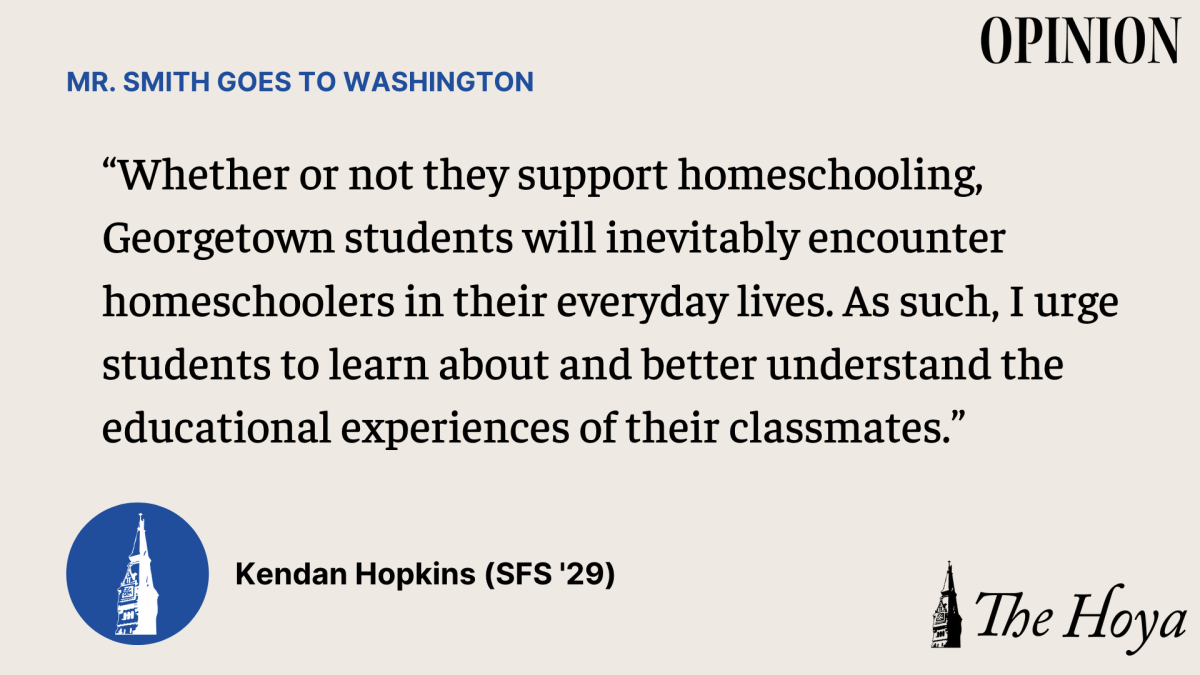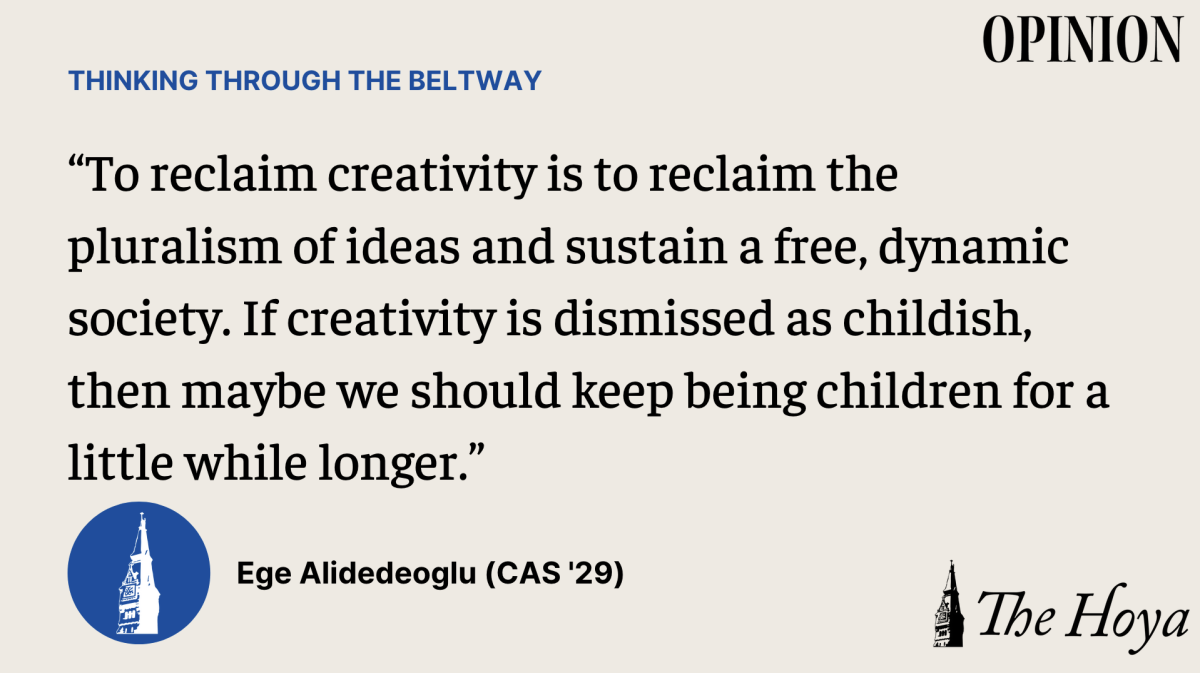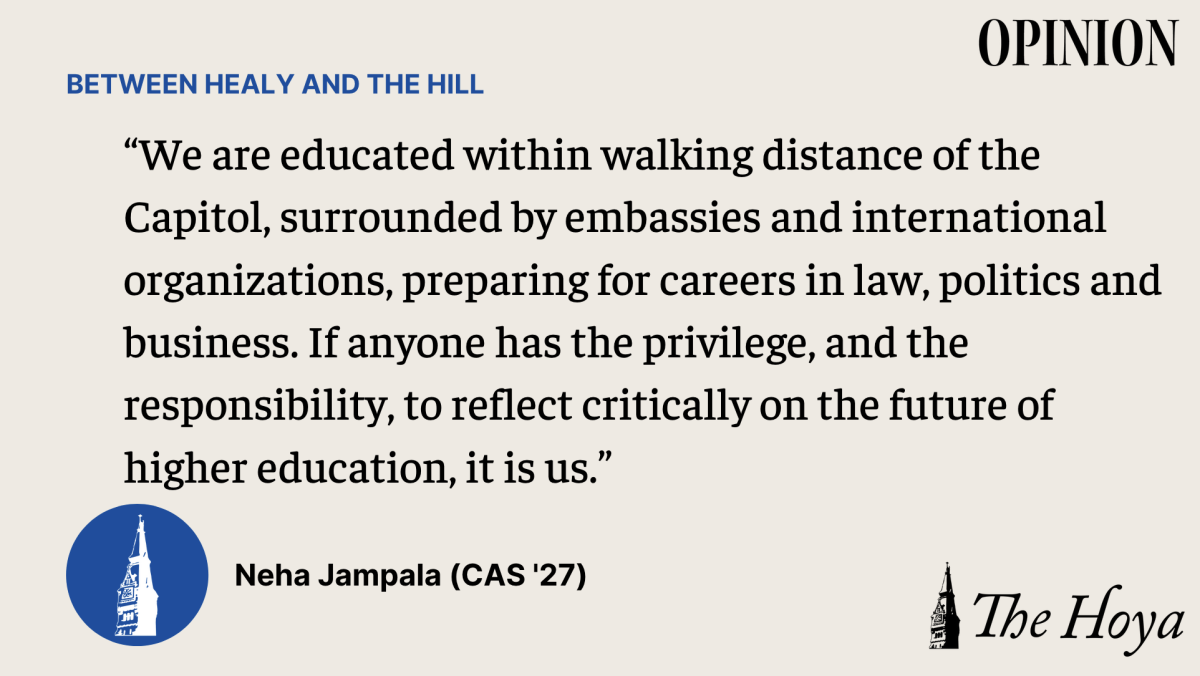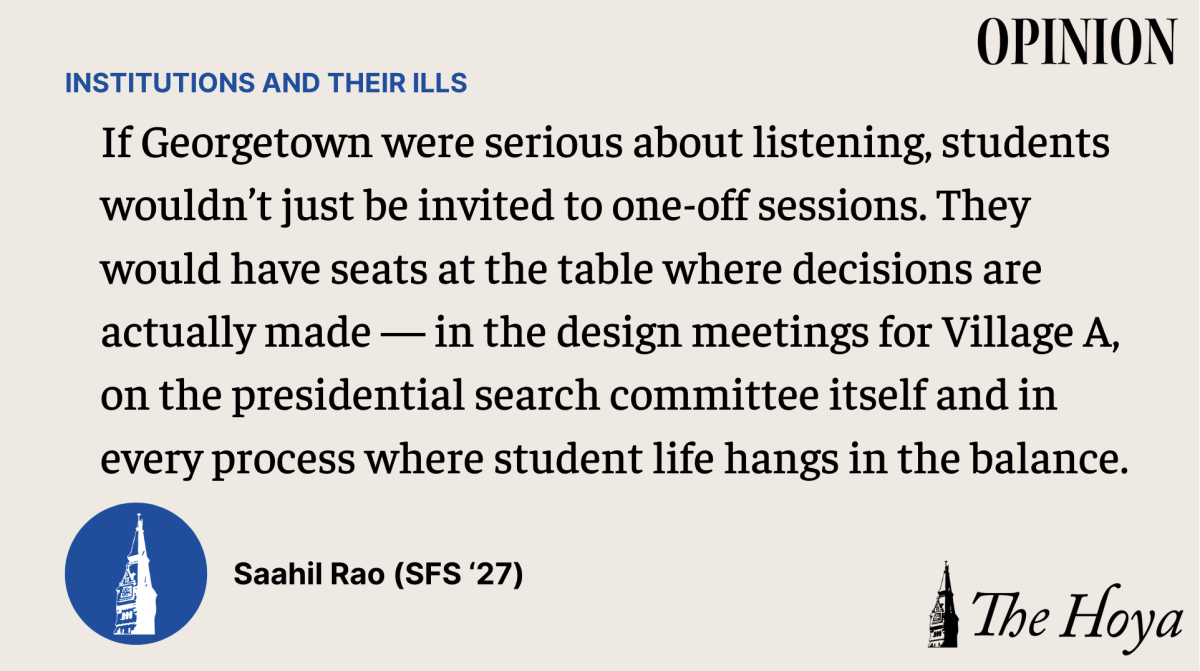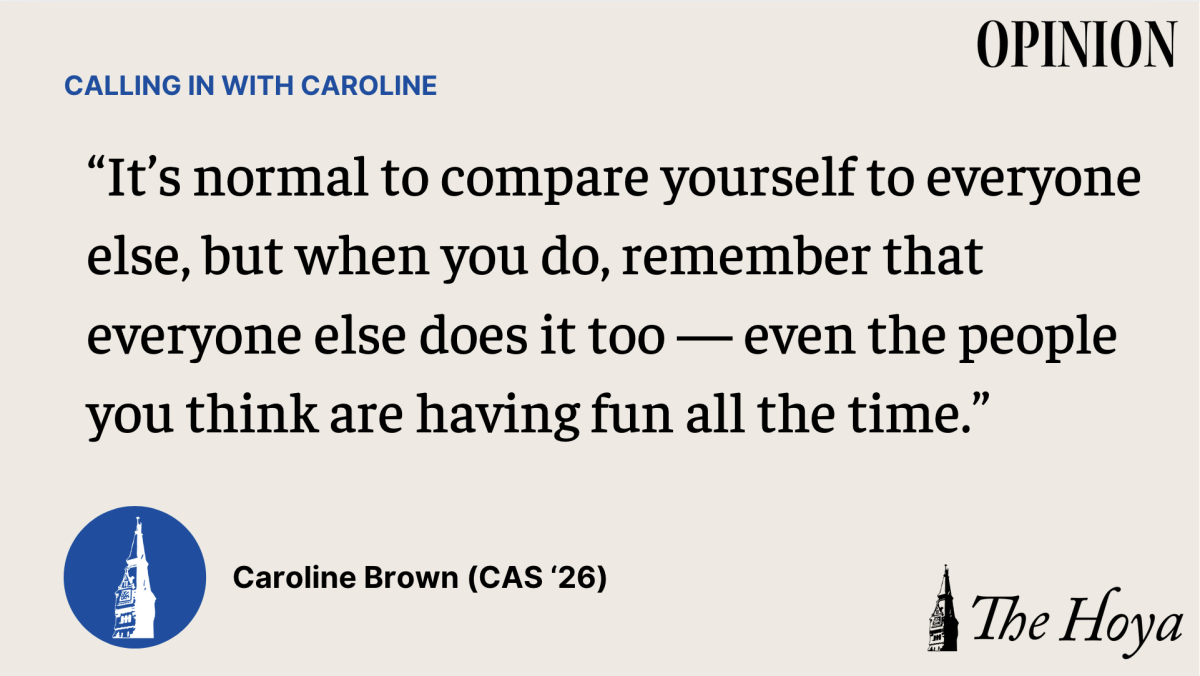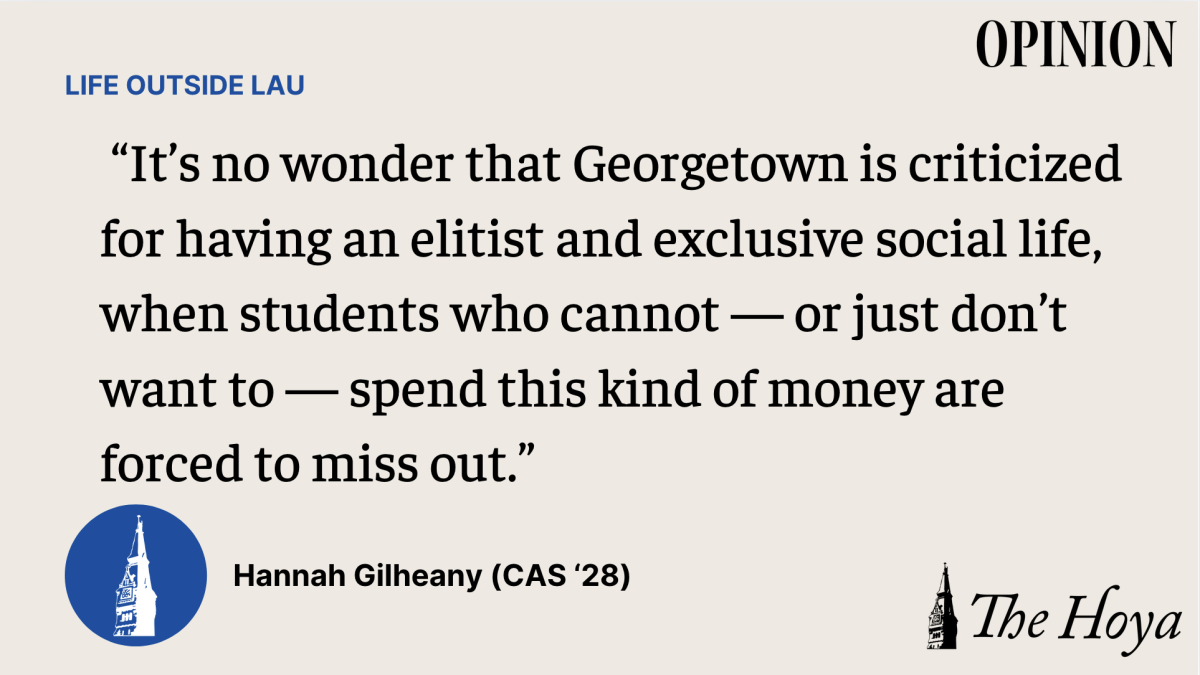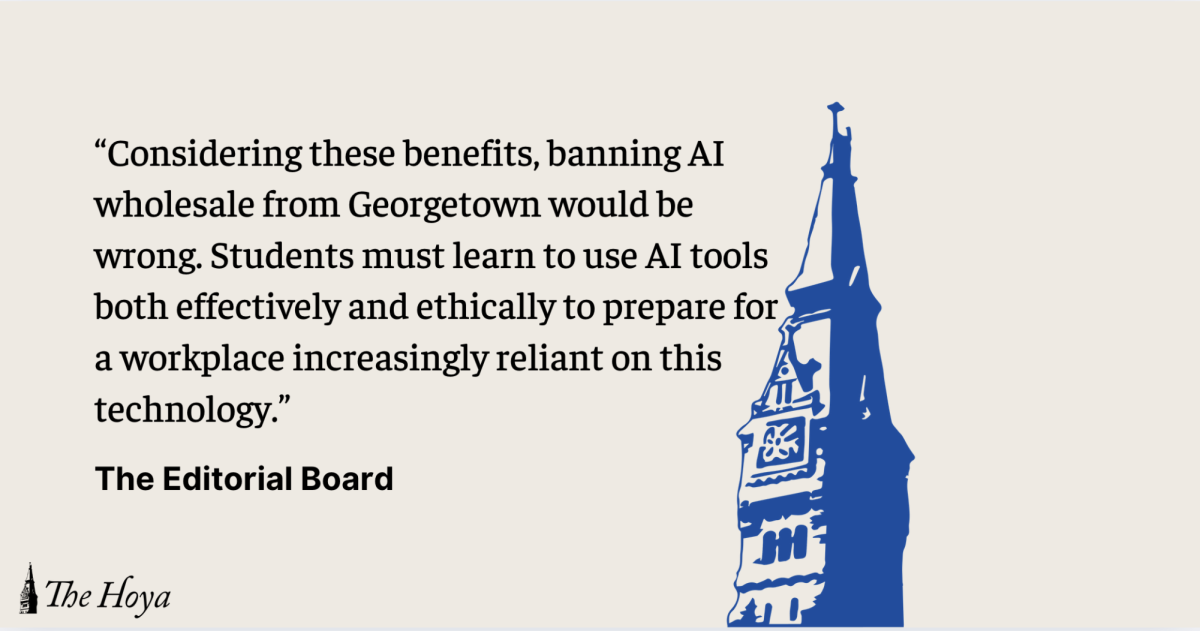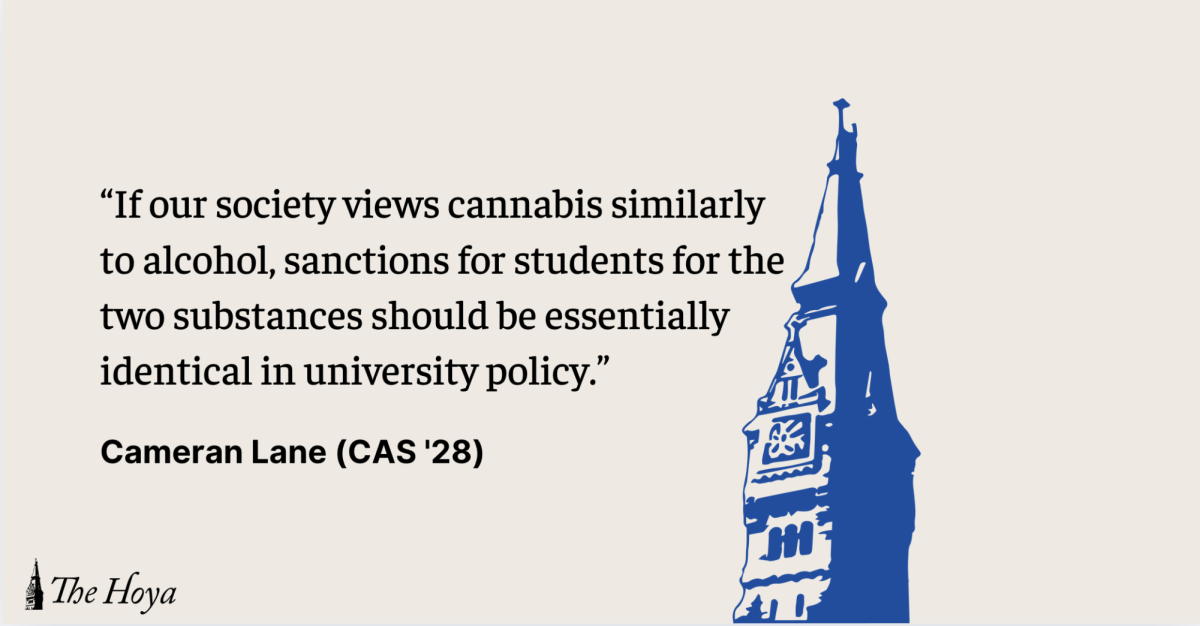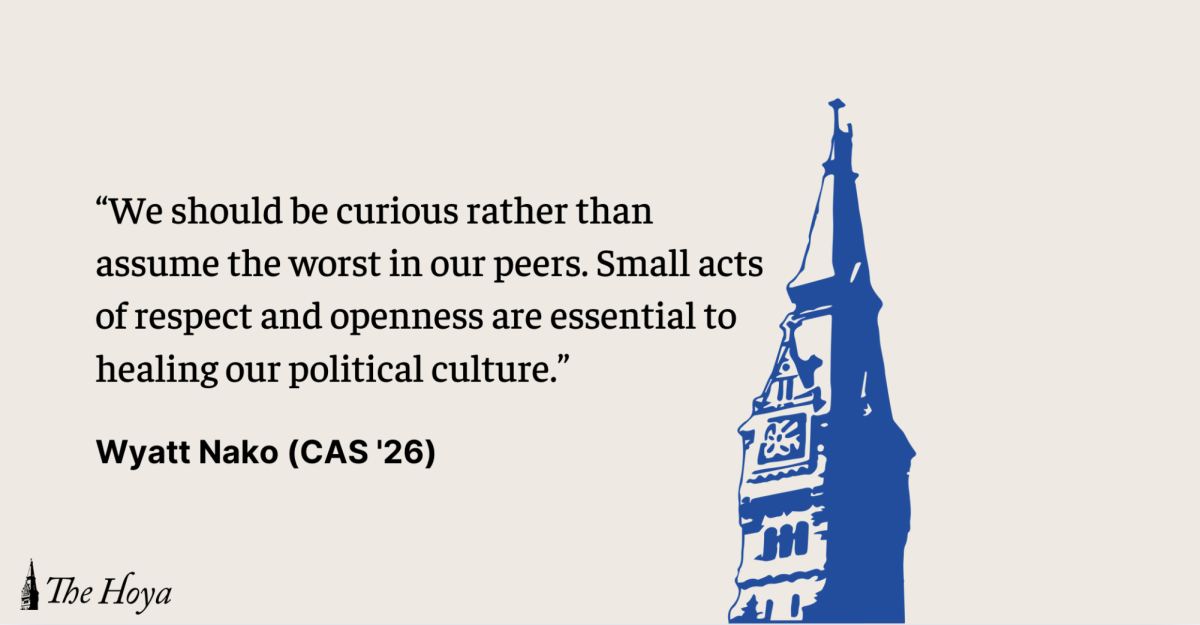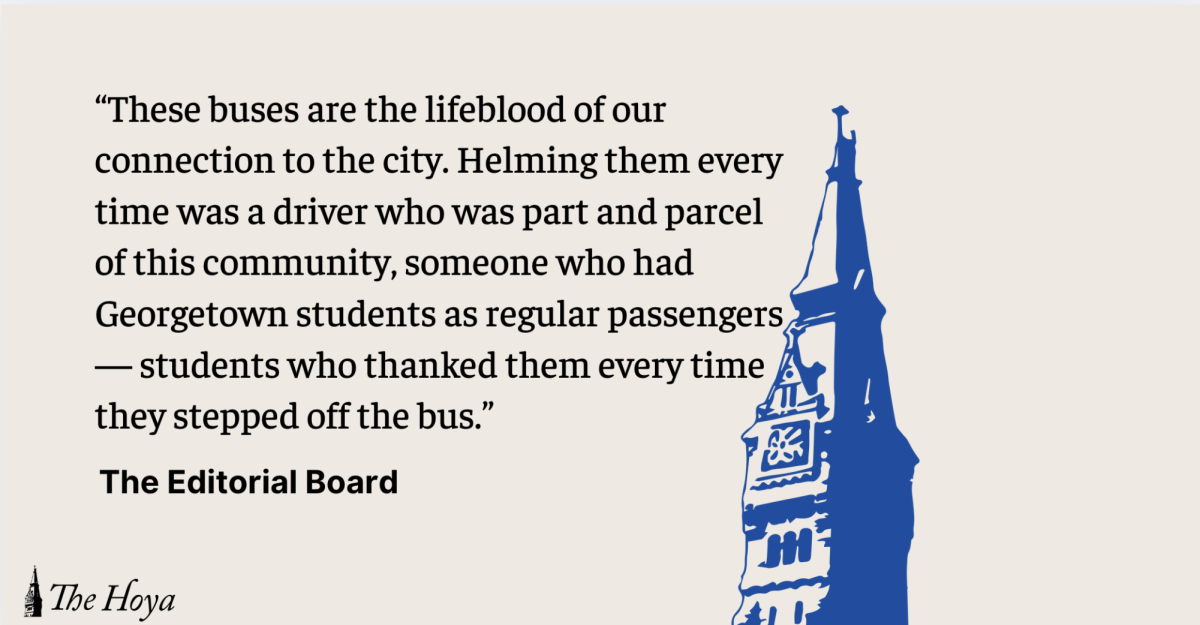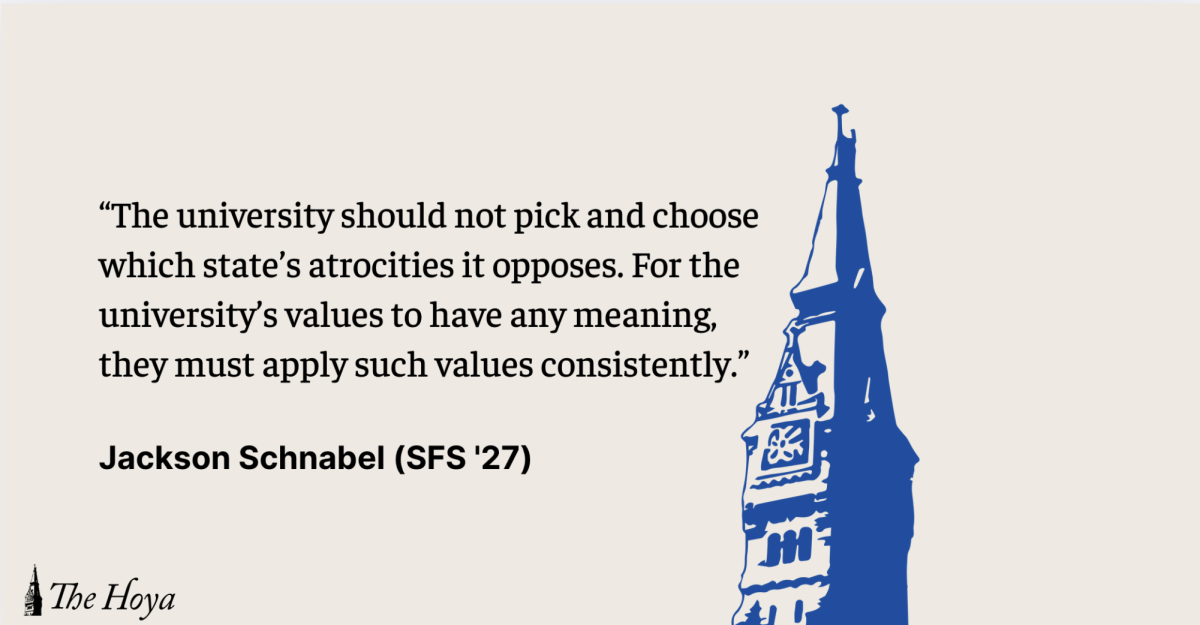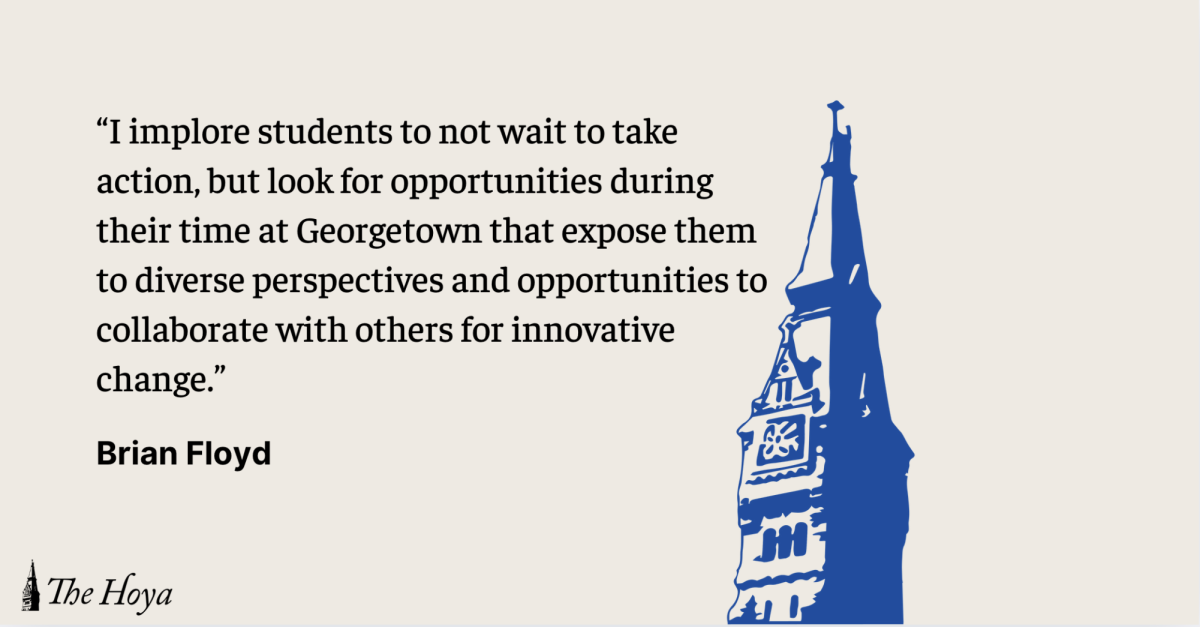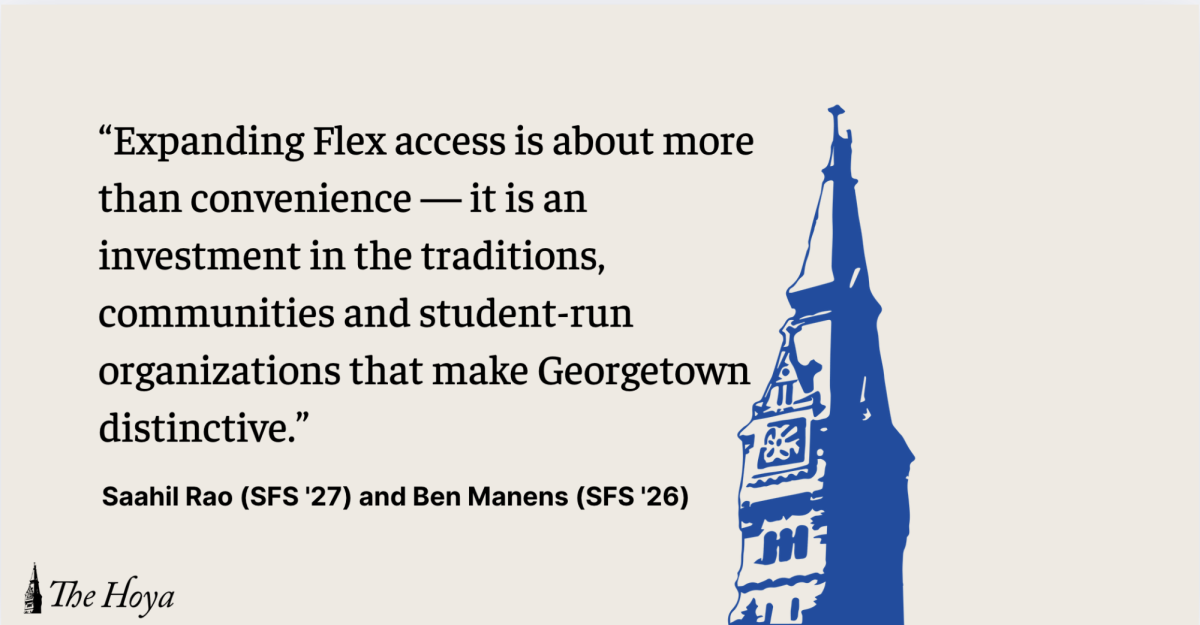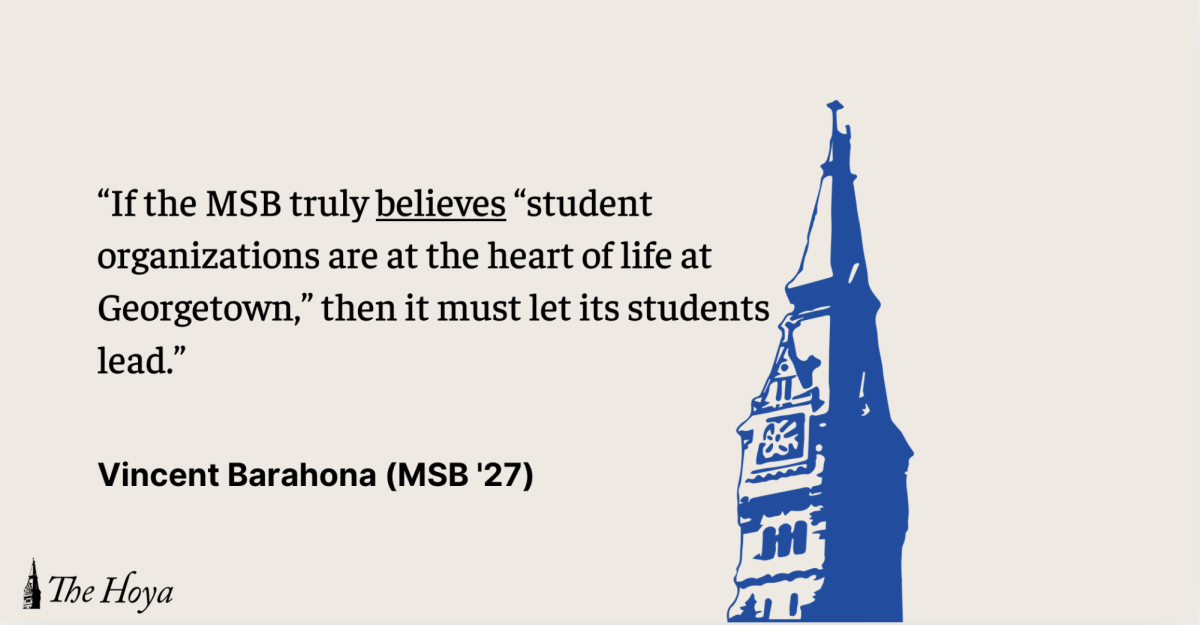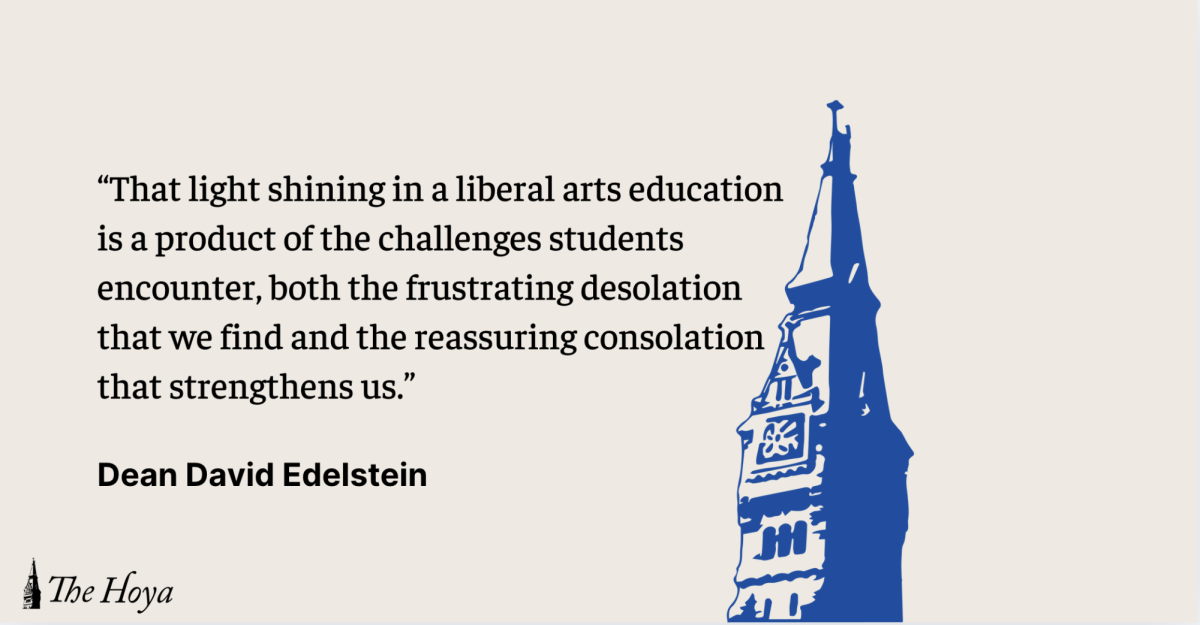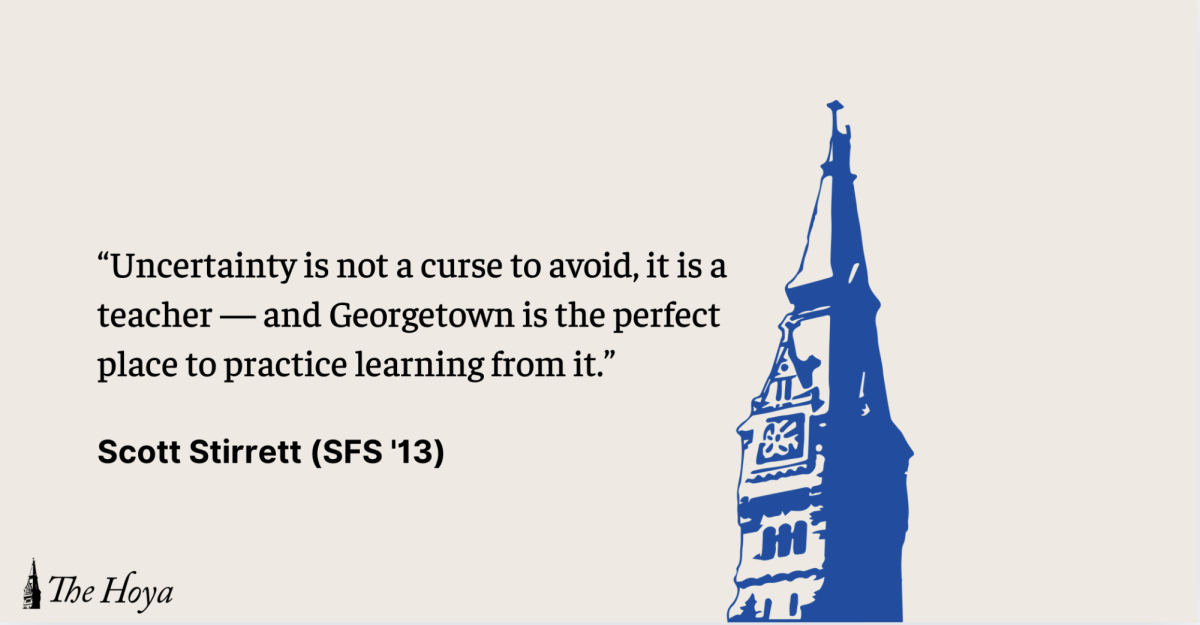“Cura Personalis. People for Others. Community in Diversity.”
You cannot avoid these terms as you walk across campus, with banners and posters constantly inundating you with Georgetown University’s Jesuit values. Their objective is clear: to help students internalize important values that help them contribute to society in a positive way. The school’s systemic and institutional effort to promote dialogue is made possible because Georgetown has these communal morals to fall back on. They’re meant to set a clear moral standard for the entire student body here at Georgetown.
However, there is an element to these values that aligns with general values and morals that other universities promote to their students anyway, just with different verbiage. This raises the issue of whether Georgetown’s Jesuit identity has gradually shifted from a meaningful distinction that sets it apart from other universities to a mere branding tool.
One cannot deny the effort Georgetown has put into maintaining its Jesuit identity with multiple religious groups on campus, most clearly visible in the chaplains of various religions hired in order to maintain interfaith dialogue, and the university’s sponsorship of various religious studies. However, Georgetown makes it clear when promoting Jesuit values that this isn’t necessarily an act of religious devotion but a commitment to the common good. These values, like service, justice and ethical leadership, transcend religious boundaries and reflect a broader pursuit of social responsibility that benefits all communities. Since Georgetown’s Jesuit values extend beyond religion and tradition, I believe more can be done in order to appropriately celebrate this Jesuit identity. One of Georgetown’s central values, “people for others,” emphasizes the importance of philanthropic actions.
It has been difficult to find philanthropic actions where Georgetown’s initiatives are more profound, consistent and committed than other non-Jesuit universities. In order to distinguish Georgetown’s Jesuit identity, the university should promote a unique initiative toward university-funded service that systemically involves the student body, which is currently lacking. Integrating itself and the student body deeper by delving into its immediately surrounding society, the city of Washington, D.C. could be an important component of appropriately exercising Georgetown’s Jesuit identity. Yale University, for instance, has multiple projects and ties with the city of New Haven, Conn. It has created job opportunities for locals and introduced revitalization projects for businesses in the city. Georgetown’s Jesuit values are certainly present in the university’s rhetoric, programs and community service. But whether they define the university in a way that truly embodies the Jesuit vision is less clear, especially since students are not directly encouraged to take part in this philanthropy. A deeper immersion by engaging Georgetown students in helping out vulnerable communities and making an impact on the city is definitely a contribution that would reinforce Georgetown’s Jesuit identity.
One can argue that Georgetown’s financial aid policy for low-income students and its $27 million pledge to descendants of enslaved people shows its commitment to catering to historically marginalized groups. Students’ commitment to Jesuit values is clear in certain initiatives such as the Georgetown Prisons and Justice Initiative’s Prison Scholars Program, which aims to provide education and Jesuit morals to marginalized groups.
However, while this is an expression of Jesuit principles, an effort could be made to make these initiatives more widespread, motivating students to participate more in community service by making it a part of their curriculum. Other Jesuit institutions, such as Boston College, have created expansive programs like the PULSE Program for Service Learning, allowing student volunteers to connect directly with populations that require their help. Rather than it simply being an extracurricular activity, by inculcating these values as a way of life for students, a greater, more active method can be made to instill Jesuit values. Perhaps by creating similar focused, institutional programs, Georgetown would have a more comprehensive implementation of its Jesuit mission.
This commitment toward the Jesuit goal will also ensure the values taught to students throughout their education have a more acute impact on the holistic education they take away from Georgetown. Seeing how Georgetown has put its preaching into action can have that effect. Currently, for some, the Jesuit mission may indeed shape their Georgetown experience in profound ways. For others, however, it might be background noise — something they see on banners or hear during convocation — but not something that truly defines their education. This defeats the purpose of being a student at an institution built upon Jesuit values and Georgetown ought to ensure that its Jesuit identity transcends from being just proclaimed to actually being lived.
Aashi Bagaria is a first-year in the School of Foreign Service. This is the second installment of her column “On Second Thought.”



